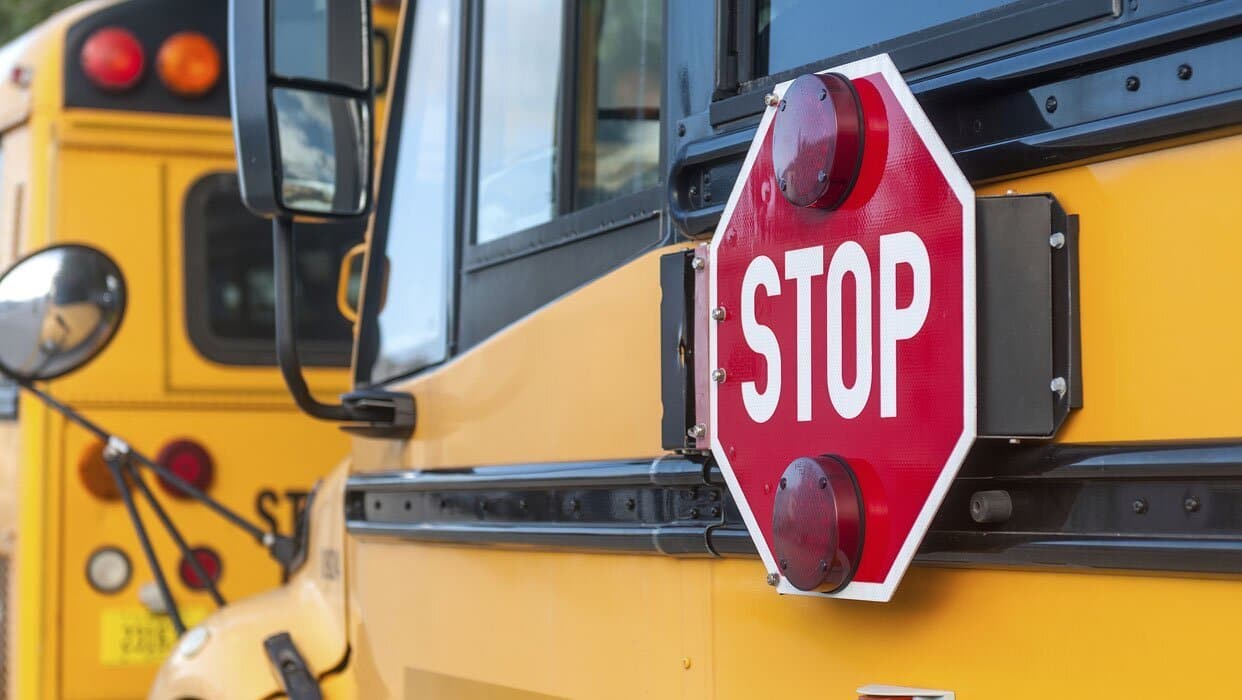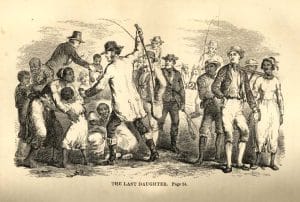As chairman of the U.S. Senate Committee on Health, Education, Labor & Pensions, Senator Bernie Sanders released a June report entitled “By the Wealthy, for the Wealthy: The Coordinated Attacks on Public Education in the United States.” The report is a brief but thorough (16 pages of text, 4 pages of footnotes) takedown of the current wave of attempts to end public education as we know it.
“Over the past decade, there has been a coordinated effort on the part of right-wing billionaires to undermine, dismantle and sabotage our nation’s public schools and to privatize our education system,” said Chairman Sanders. “That is absolutely unacceptable. We can no longer tolerate billionaires and multi-national corporations receiving massive tax breaks and subsidies while children in America are forced to go to under-staffed, under-resourced, and under-funded public schools. On this 70th anniversary year of Brown v. Board of Education, let us recommit to creating an education system that works for all of our people, not just the wealthy few.”
Let’s take a look at some of the highlights.
Sanders notes that in the past three – an unprecedented number of states have adopted and expanded school vouchers – draining hundreds of millions of dollars from state coffers and education systems to feed a system of private schools with neither accountability nor oversight. This voucher system is designed both to protect discrimination and, as we have seen here in Pennsylvania, to subsidize it with taxpayer dollars.
These efforts are fueling the creation of two, segregated K-12 education systems – a private and public one – that are neither equitable nor fiscally sustainable.
The report cites studies that find that state funding for public education has barely budged in a decade, but tax breaks and subsidies for private schools have gone up by over $7 billion—408% – adjusted for inflation.
Make no mistake; Republican’s efforts to vilify educators, ban books, and censor what is taught in the classroom are blatant attempts to erode trust in the nation’s public schools and justify diverting hundreds of millions of taxpayer dollars away from public education.
The report is on the mark.
Since the 1984 release of A Nation at Risk, the Reagan-era report designed with the goal of supporting a predetermined conclusion that public education was failing, that drum has been beaten ever since. As Christopher Rufo, architect of the panic over critical race theory told an audience at Hillsdale College, “To get universal school choice, you really need to operate from a place of universal public school distrust.”
Since Milton Friedman laid it out decades ago, a dream on the right has been to replace our public education system with a system of privatization—not just to privatize the delivery of education, but to privatize the responsibility for acquiring it. It’s no coincidence that Friedman’s idea is the central position of the Project 2025 chapter on education.
However, the obstacle has always been simple, albeit big—the American public overwhelmingly likes their public education system. And so for decades, privatizers have been working to chip away at that public trust, to drive home the idea that public schools are failing, and so must be replaced.
The report offers a brief explanation of the basic voucher types.
Traditional vouchers: the state gives tax dollars directly to families for use to pay private school tuition.
Tax credit scholarships: in this version, instead of paying their taxes to the state, individuals or corporations give money to a “scholarship” organization that then issues a voucher to a family. Pennsylvania has a pair of tax credit scholarship programs, Educational Improvement Tax Credits (EITC) and Opportunity Scholarship Tax Credits (OSTC). Kentucky’s state supreme court found their tax credit scholarship law unconstitutional.
Education savings accounts: ESA’s give parents a taxpayer-funded voucher that can be used for a wide array of educational (and sort-of-educational) expenses. These are the sorts of vouchers involved in headlines about $1 million of taxpayer dollars going to purchase Lego sets.
Vouchers can be limited (only available for students with certain family income levels or who attends schools with particular test scores), but in recent years, the trend has been universal vouchers—vouchers that any student can have, even if they are from a wealthy family and are attending an excellent public school, or not attending public school at all.
No school voucher program of any sort has ever passed a public vote by taxpayers; every single program has been passed into law by voucher-supporting legislators.
Their most common argument in favor of the vouchers has been that these will allow poor students to “escape failing schools.” But the Sanders report shows what we have learned over the years of these programs. The benefits are used primarily by families who are already sending their children to expensive private schools. In fact, several states show that voucher students aren’t “escaping” anything—they are students who never attended public school.
It is the more advantaged communities that are benefiting from taxpayer-funded vouchers.
On top of that, the tax credits available for funding some voucher programs are primarily claimed by high income families. Sanders reports Institute on Taxation and Economic Policy findings for three states. In Arizona, 60% of the tax credits are claimed by families with income over $200,000. In Virginia, the figure is 87%. In Louisiana, the figure is a whopping 99%.
Corporate donors also make out well in tax credit programs. In Pennsylvania, TD Bank, PNC Bank, and CIGNA health donated a total of almost $2.9 million between 2012-2014, getting 90% of their donation back and reducing their tax liability to the state. For the wealthy, tax credit scholarships are one more tax break.
This is the deceptive cost of tax credit systems. Supporters (like Betsy DeVos, who wanted a national tax credit scholarship program) argue that unlike other voucher programs, tax credit programs don’t use any government money. But by allowing donors to fund education privatization in lieu of paying taxes, these programs leave a hole in the state budget. Pennsylvania’s legislature just approved a budget that increased the amount of taxes they’ll give up for the tax credit program by $55 million.
Where are these attacks coming from?
If parents are largely satisfied with their public schools (and year after year, polls indicate that they are) and voters don’t vote for voucher programs, where are the attacks coming from?
The report explains:
A handful of conservative billionaires are funding the education privatization movement led by advocacy groups, think tanks, and media outlets. The Bradley Foundation, DeVos Family Foundation, and Koch Foundation are some of the biggest right-wing funders driving the research, state legislation, lobbying campaigns, and legal battles to attack the public education system from all fronts.
The DeVos family’s American Federation for Children favors a technique that Betsy DeVos used in her days as a Republican party leader in Michigan: pressure GOP lawmakers to fall in line, and if they don’t, fund an opponent to beat them in the primary. This year, when rural Republican legislators in Texas refused to back Governor Greg Abbott’s dream of vouchers for the Lone Star State, the American Federation for Children’s Super PAC spent over $3.7 million to oppose 15 Republican incumbents.
The Koch-sponsored American Encore spent over $1.4 million in 2014 to elect Doug Ducey governor of Arizona; he then led efforts to create the nation’s first universal voucher program.
The effect of these voucher programs is to create multiple parallel school systems in states. Common sense tells us that this would be a costly proposition. No school district has ever said, “We are facing a tight budget, so the solution is to break single large schools into multiple small ones.” No family has ever said, “Our household budget is strapped, so let’s buy a second house and split the household between them.”
In fact, the report argues that multiple K-12 systems are not sustainable. Universal vouchers systems have vastly exceeded their projected costs, while research shows that over the same time, per pupil spending has decreased. New Hampshire legislators created a last minute universal voucher program addition to the 2021 budget; the projected $130,000 cost of the program had swollen in just two years to $24 million.
Those costs don’t reflect a simple shift in spending. Students who leave and take funding with them still leave behind “stranded” costs, costs that are not reduced simply because a school has fewer students. Universal vouchers create even more funding issues by giving taxpayer dollars to students who were never in the public system to begin with. When they get vouchers, the cost to taxpayers is increased, and the expenses of public schools are reduced by $0,00.
READ: Meet Three of the Neighbors Who United to Defend Public Education in Central Bucks School District
If, as the argument goes, vouchers are a lifeboat to rescue students from the sinking ship of public education, they are lifeboats that are being built out of pieces of the public ship, rendering it less seaworthy, even as the lifeboats save only a few students, including some who already have yachts of their own. Meanwhile, the rest of the students are left behind on a ship that, even if it wasn’t sinking before, is now increasingly in trouble.
Vouchers are marketed under the banner of school choice, but this report reminds us that “school choice” is a misnomer.
Voucher laws prioritize the “rights” of the private school over any student’s “right” to choice. That includes the right to discriminate.
In Pennsylvania, a report from Education Voters of Pennsylvania has documented discriminatory policy among our voucher-accepting schools. These schools reserve the right to reject or expel students for their religious beliefs, their sexual orientation, their special needs, or for reasons that the school chooses not to disclose at all.
“School choice” conjures up a picture of families deciding which school best suits their child, but in reality, it is the school that will choose which students it is willing to admit. A they will do it at taxpayer expense. That is one bitter irony of school choice; you may find yourself paying taxes to send your neighbor’s child to a school that would reject your own child.
Private schools are not subject to the same sorts of accountability and oversight as public schools. That includes requirements for serving students with special needs or, in some states, any requirement for testing and transparency.
Given all that, it would not be surprising to find that vouchers increase segregation, and the report cites data indicating just that. In the US, fewer than fifty percent of students in public schools are white; in private schools, that percentage is 65%.
The report offers some recommendations for the future, and it opens with a statement that may seem obvious, but which is important and deserves examination.
Education for all children benefits everyone, including through their contributions to society and the national economy … This is why all of us – those with school-aged children and those without – pay into the public education system. We cannot abandon our responsibility for educating our nation’s children to private entities who do not have the same obligation to further the common good.
READ: ‘Moms on a Mission’ Is the Latest Right-Wing Astroturf Group Fighting to Privatize Education
This gets to the heart of the trouble with privatization of education. The movement toward privatization seeks to turn education from a common good and shared responsibility into a commodity, a consumer good like a toaster or a washing machine. As with any other consumer good, the implicit idea is that the government doesn’t need to get involved, and that finding the right toaster or washing machine or school is the consumer’s problem and nobody else’s. Also implicit in this redefinition—the consumer can have all the choice that they can afford. The one significant difference is that Toaster-Mart doesn’t tell you that they refuse to sell you the toaster you picked out because you are LGBTQ or not born-again.
The notion that education is only a benefit for the family of the student is narrow and foolish. We all have a stake in an educated population, in educated co-workers, neighbors, and fellow voters.
The recommendations of the report — strengthening early childhood education, addressing the teacher shortage, investing in community schools, free college for all — are all lovely ideas, worthy of discussion on their own.
But the major issue, the foundational threat, of the privatization movement is the attempt to transform education from a shared responsibility into a private challenge. It’s an attempt to wash our hands of Other Peoples’ Children, to just cut them a paltry check and say, “You’re on your own now. Congratulations on your freedom, and don’t ever bother the rest of us again.”
Abandoning our shared responsibility to provide a decent education is a recipe for future disaster and dysfunction as a nation. As the report notes, “As the richest nation in history, the United States should have the best education system in the world.”
That should be a challenge to us as a nation. Privatization is not the way to meet that challenge.







